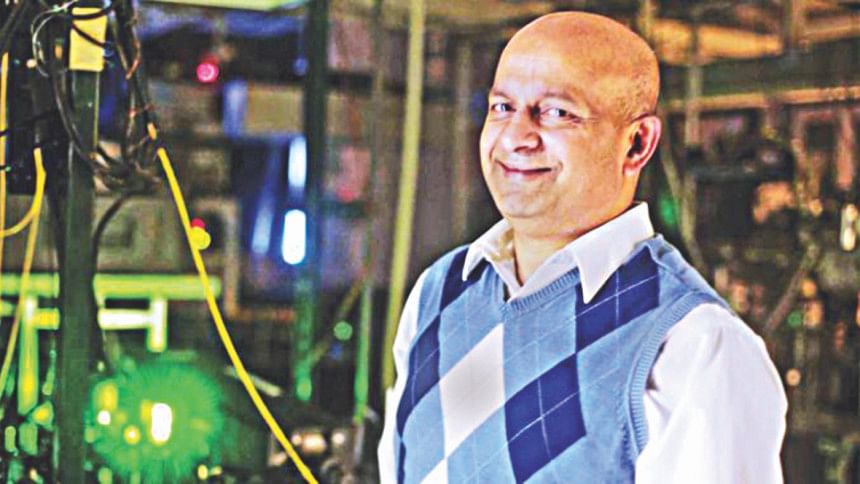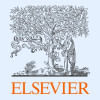Two Bangladeshis win special prize

Two Bangladeshis are among a team of scientists and engineers who are to get Special Breakthrough Prize in Fundamental Physics for their contribution to the detection of gravitational waves, announced on February 11.
Dipankar Talukdar and Selim Shahriar are in the team of scientists with the Laser Interferometer Gravitational-Wave Observatory (LIGO) in the United States that detected gravitational waves, hypothesised by Albert Einstein a century ago, according to breakthroughprize.org.
Dipankar and Selim worked with the LIGO team and had great contribution in gravitational wave detection.
Born in 1977 in Barguna, Dipankar passed HSC from Barguna Government College, completed graduation (2002) in physics, received the commonwealth scholarship from the UK and started studying higher mathematics in Cambridge (2003). Dipankar completed his third master's from the University of Washington and then he received the PhD degree in 2012 from the same university. The topic of his PhD research was also about black holes and gravitational waves.
He is now working for Oregon University's LIGO collaboration team.
Born in 1964, Selim had his schooling in Pabna and passed the HSC from Dhaka College. Then he studied at the Massachusetts Institute of Technology (MIT). Selim Shahriar is now a professor both at the Department of Electrical Engineering and Computer Science and Physics and Astronomy at the Northwestern University, USA.
He leads the experimental portion of Northwestern University's chapter of the LIGO Scientific Collaboration, the international consortium that made the groundbreaking discovery.

Shahriar searched for ways to improve the sensitivity of the LIGO detectors and broaden the spectrum over which the detectors are sensitive. His group has identified a technique that improved sensitivity.
Shahriar is also working on a second technique that uses atomic clocks that are placed on other planets and celestial bodies to enable the detection of gravitational waves in a different and very important part of the spectrum.
Northwestern University website said, "Up until now, astronomers have only been able to explore the universe using light. Detecting gravitational waves gives them another tool for astronomical exploration that could potentially reveal what happened within the very moments that the universe was born."
The Selection Committee of the Breakthrough Prize in Fundamental Physics announced the prize winners on May 2.
The $3 million award will be shared between two groups of laureates: the three founders of LIGO, who will each equally share $1 million; and 1012 contributors to the experiment, who will each equally share $2 million.
The founders are Ronald WP Drever, Caltech, professor of physics, emeritus; Kip S Thorne, Caltech, the Feynman Professor of Theoretical Physics, emeritus; and Rainer Weiss, MIT, professor of physics, emeritus, said breakthroughprize.org.
The Breakthrough Prize is a set of international awards bestowed in three categories by Breakthrough Prize Board in recognition of scientific advance. This is founded by Google co-founder Sergey Brin, cofounder and chief executive officer of personal genomics company 23andMe Anne Wojcicki, Facebook cofounder Mark Zuckerberg and his spouse Priscilla Chan, venture capitalist and physicist Yuri Milner and his spouse Julia Milner, and founder of Alibaba Group Jack Ma and his spouse Cathy Zhang.
LIGO was built between 1994 and 2002 by Caltech and MIT in partnership with the National Science Foundation of the US, with the aim of observing the gravitational waves predicted by Einstein's general theory of relativity.
After a major upgrade from 2010–2015, LIGO and its team of scientists detected the wave emanated from two black holes with masses about 30 times that of the sun, spiralling into each other 1.3 billion light years away.
The discovery inaugurates a new era of gravitational wave astronomy which will open a window onto some of the most dramatic and violent phenomenon in nature as well as the mysteries of the early universe.
Stephen Hawking, who won the Special Breakthrough Prize in 2013, said, “This discovery has huge significance: firstly, as evidence for general relativity and its predictions of black hole interactions, and secondly as the beginning of a new astronomy that will reveal the universe through a different medium. The LIGO team richly deserves the Special Breakthrough Prize.”
The laureates will be recognized at a ceremony in fall this year, where the annual Breakthrough Prize in Fundamental Physics (distinct from the special prize) will also be presented, along with the Breakthrough Prizes in Life Sciences and Mathematics.

 For all latest news, follow The Daily Star's Google News channel.
For all latest news, follow The Daily Star's Google News channel. 






Comments